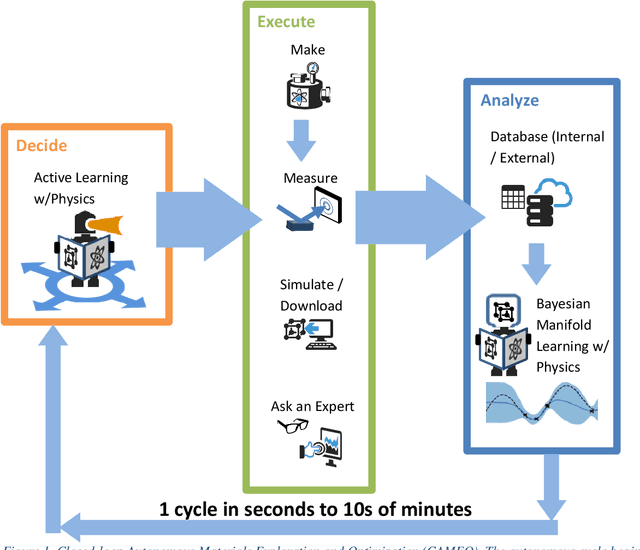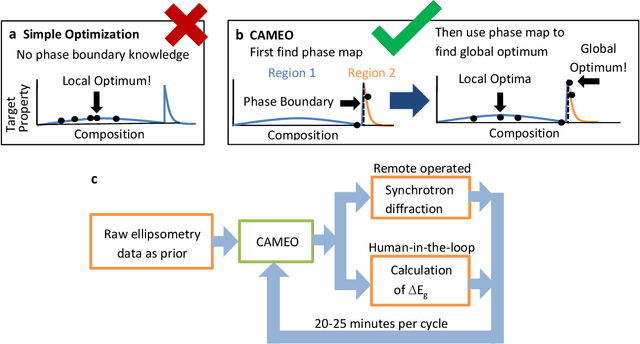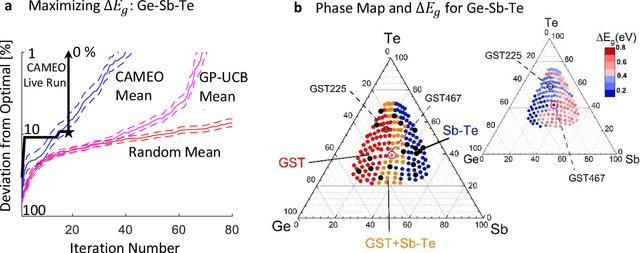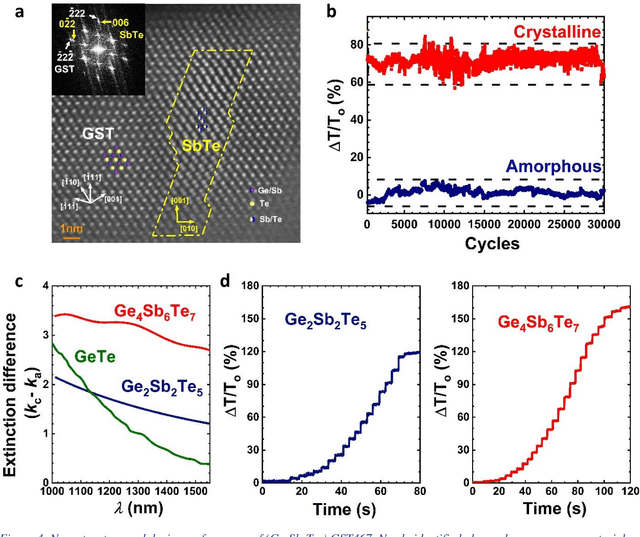Heshan Yu
Real-time experiment-theory closed-loop interaction for autonomous materials science
Oct 22, 2024Abstract:Iterative cycles of theoretical prediction and experimental validation are the cornerstone of the modern scientific method. However, the proverbial "closing of the loop" in experiment-theory cycles in practice are usually ad hoc, often inherently difficult, or impractical to repeat on a systematic basis, beset by the scale or the time constraint of computation or the phenomena under study. Here, we demonstrate Autonomous MAterials Search Engine (AMASE), where we enlist robot science to perform self-driving continuous cyclical interaction of experiments and computational predictions for materials exploration. In particular, we have applied the AMASE formalism to the rapid mapping of a temperature-composition phase diagram, a fundamental task for the search and discovery of new materials. Thermal processing and experimental determination of compositional phase boundaries in thin films are autonomously interspersed with real-time updating of the phase diagram prediction through the minimization of Gibbs free energies. AMASE was able to accurately determine the eutectic phase diagram of the Sn-Bi binary thin-film system on the fly from a self-guided campaign covering just a small fraction of the entire composition - temperature phase space, translating to a 6-fold reduction in the number of necessary experiments. This study demonstrates for the first time the possibility of real-time, autonomous, and iterative interactions of experiments and theory carried out without any human intervention.
On-the-fly Closed-loop Autonomous Materials Discovery via Bayesian Active Learning
Jun 11, 2020



Abstract:Active learning - the field of machine learning (ML) dedicated to optimal experiment design, has played a part in science as far back as the 18th century when Laplace used it to guide his discovery of celestial mechanics [1]. In this work we focus a closed-loop, active learning-driven autonomous system on another major challenge, the discovery of advanced materials against the exceedingly complex synthesis-processes-structure-property landscape. We demonstrate autonomous research methodology (i.e. autonomous hypothesis definition and evaluation) that can place complex, advanced materials in reach, allowing scientists to fail smarter, learn faster, and spend less resources in their studies, while simultaneously improving trust in scientific results and machine learning tools. Additionally, this robot science enables science-over-the-network, reducing the economic impact of scientists being physically separated from their labs. We used the real-time closed-loop, autonomous system for materials exploration and optimization (CAMEO) at the synchrotron beamline to accelerate the fundamentally interconnected tasks of rapid phase mapping and property optimization, with each cycle taking seconds to minutes, resulting in the discovery of a novel epitaxial nanocomposite phase-change memory material.
 Add to Chrome
Add to Chrome Add to Firefox
Add to Firefox Add to Edge
Add to Edge